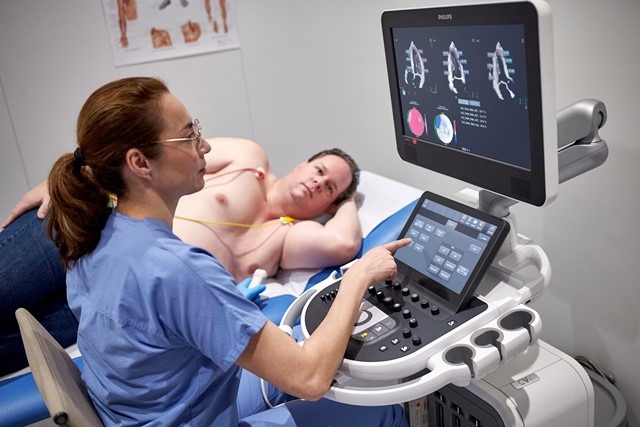
Royal Philips has expanded its cardiovascular ultrasound solution portfolio with the introduction of a new Affiniti CVx cardiovascular ultrasound system.
Designed to increase efficiency and productivity, the new Affiniti CVx provides an efficient workflow to cardiologists by incorporating the company’s EPIQ CVx premium cardiology ultrasound system.
Affiniti CVx features an advanced configurable user interface (UI) and AutoStrain technology that enables to decrease strain analysis time by 70%.
Philips has also launched 7.0 for EPIQ CVx cardiovascular ultrasound solutions
At ESC 2020, which is being held from 29 August to 2 September, Philips announced the launch of new Affiniti CVx and release 7.0 for EPIQ CVx cardiovascular ultrasound solutions to improve diagnosis and procedures.
Philips EPIQ CVx is integrated with a suite of features to minimise the time spent per patient, including at the echo lab, patient bedside, or during procedures.
The tools such as 3D Auto LAA facilitate quicker measurements of the left atrial appendage (LAA) from 3D increasing procedure efficiency.
Cardiac TrueVue Color and Cardiac TrueVue Glass expand on the current Cardiac TrueVue photorealistic rendering by improving the visualisation of flow, jet origin and morphology.
In addition, the company announced updates to the AutoStrain technology to enhance strain measurements in the acquisition and processing of images.
Philips cardiology and personal health medical officer and cardiologist Dr Alexandra Gonçalves said: “The Covid-19 pandemic has created an urgent need for nimble, user-friendly cardiac ultrasound solutions that can keep patients and healthcare providers safe while also generating the data needed to make confident decisions.
“With Release 7.0 of EPIQ CVx and Affiniti CVx, we’ve sharpened our focus on improving the cardiology experience by increasing the integration of our platforms to meet this demand.”
Recently, Philips has introduced a new rapid equipment deployment kit to enhance critical care patient monitoring capabilities during the Covid-19 pandemic.






